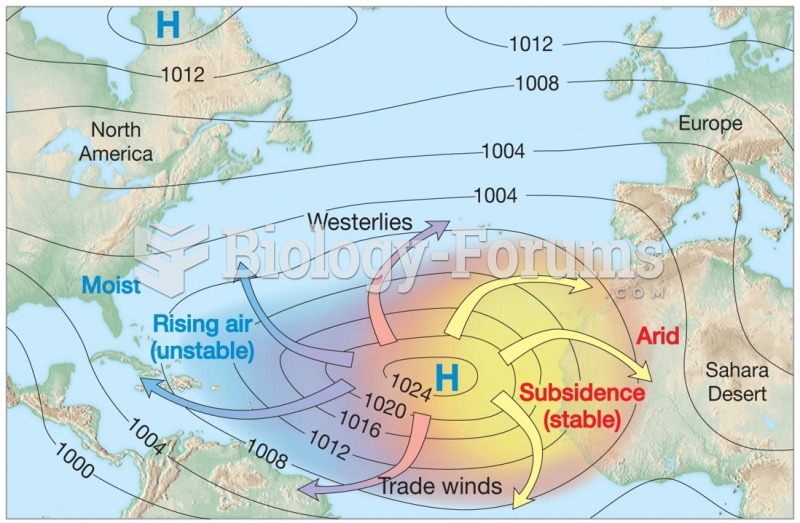|
|
|
The immune system needs 9.5 hours of sleep in total darkness to recharge completely.
More than nineteen million Americans carry the factor V gene that causes blood clots, pulmonary embolism, and heart disease.
As many as 28% of hospitalized patients requiring mechanical ventilators to help them breathe (for more than 48 hours) will develop ventilator-associated pneumonia. Current therapy involves intravenous antibiotics, but new antibiotics that can be inhaled (and more directly treat the infection) are being developed.
By definition, when a medication is administered intravenously, its bioavailability is 100%.
Signs and symptoms of a drug overdose include losing consciousness, fever or sweating, breathing problems, abnormal pulse, and changes in skin color.







